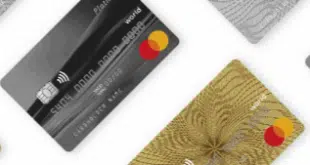Visa Inc. on Monday became the latest payments network to offer the U.S. debit industry a solution for the problem of how to route EMV debit transactions in compliance with federal law. The proposal comes after debit networks on Thursday spurned a solution that MasterCard Inc. floated two weeks ago.
Visa also spelled out deadlines for ATM processors to handle EMV transactions and for a liability shift for AMT deployers that don’t install EMV-capable machines
Under Visa’s proposal, the network will make available what it is calling a “generic, unbranded application identifier [AID]” that will let EMV debit cards comply with the Durbin Amendment’s requirement that the cards support at least two unaffiliated networks. The Visa AID, which the network says it is making available to issuers at no charge, will support Visa and non-Visa branded cards as well as transactions routed through the Visa network or a non-Visa network.
Under the Europay-MasterCard-Visa chip card specifications, the AID is a string of characters that identify both the network and the specific type of card, for example credit or debit.
As a proprietary standard, EMV doesn’t currently allow for merchant choice of debit network, as mandated by Durbin, which is part of the 2010 Dodd-Frank Act. At the same time, various EMV implementation timetables promulgated by the major card networks require that acquiring processors be capable of handling EMV transactions by April 1.
If adopted by the industry, Visa’s solution would create a common AID that would trigger a process by which processors could route transactions to merchants’ preferred networks. “This provides issuers with the flexibility to change networks without having to reissue cards,” says Stephanie Ericksen, head of authentication product integration at Visa.
Indeed, one of the benefits of Visa’s proposal, according to Ericksen, is that card issuers would have the choice of placing both Visa’s debit app and AID on their card as well as the common app and AID. “It will not be a requirement that our common AID be adopted,” she says.
Visa’s proposal differs from MasterCard’s in at least one key respect: While MasterCard requires that transactions pass through its switch, Visa has no such requirement. Visa says its common AID will also support both point-of-sale and ATM transactions. Issuers will also have a choice of adopting Visa’s common AID and then developing their own AID if they wish, according to Ericksen.
Visa’s move comes after U.S. debit networks last month proposed their own common AID and asked both Visa and MasterCard to support it. MasterCard responded by offering to open its proprietary Maestro debit AID to the industry, a solution debit executives rejected because of questions surrounding ownership of the AID and because MasterCard required all transactions to pass through its switch. MasterCard says the latter requirement streamlines EMV certification for processors.
It remains to be seen how debit networks will react to the Visa proposal. For now, some experts contacted by Digital Transactions News are hopeful but are waiting for more details. “The high-level announcement is definitely movement from Visa\'s position earlier last year,” says Paul Tomasofsky, president of the Secure Remote Payment Council, a trade group for debit networks that has spearheaded the effort to create a common AID, in an e-mail message. “The details are most important and will be needed to further understand if this solution meets with the recommended approach of a Common US Debit AID with appropriate governance parity by all debit networks as endorsed by the SRPc. We look forward to learning these details.”
Terry Dooley, senior vice president and chief information officer at the Johnston, Iowa-based Shazam Network, an SRPc member, says that while Visa’s approach to the common AID appears to be good, many of the details are still unknown. “The no-fee and ATM support as well as taking a more common approach to the AID is good, but many of the details have to emerge,” said Dooley.
The omission of details concerning contactless EMV transactions could be especially critical, Dooley says. “With mandate deadlines looming in April to support both contact and contactless transactions, you can’t leave the door open on contactless,” he says. “The industry really needs to resolve it all at once so there is a clear view of where the industry is heading.” Ericksen says that, while Visa’s proposal does not address contactless transactions, that point will be discussed going forward.
On the ATM side, Visa set an Oct. 1, 2017, deadline to shift liability for counterfeit-card fraud to the owners of machines that aren’t equipped to accept EMV cards. This date is a year later than a similar deadline set by MasterCard in September. Visa will also require ATM processors to be capable of handling EMV transactions by April 1, 2015. “We talked to a lot of the ISOs that drive ATMs and they tell us they are not ready to support EMV at this time,” says Ericksen.




